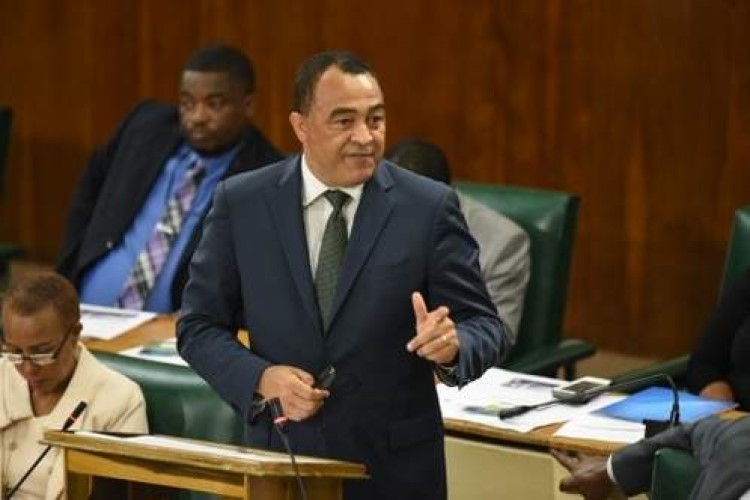MINISTER of Health and Wellness Dr Christopher Tufton says that the National Health Fund (NHF) will have to reinvent itself in 2023 or lose its relevance after a while.
Dr Tufton, guest speaker at the 20th anniversary news briefing of the NHF Tuesday, revealed plans for expanding support for the treatment and management of chronic non-communicable diseases (NCDs) through the fund’s Individual Benefits Programme (IBP). He, however, cautioned that if the NHF does not reinvent itself this year, it will face challenges.
“There are some issues which we are going to have to confront, and I say so in the broadest context of the NHF’s 20th anniversary,” he told health and media personnel attending the briefing. He also warned that while the fund has remained relevant, challenges are evolving in a way that makes the financing of the Government’s response unsustainable.
“It’s a harsh reality that we have to face, because when you look at the benefits and the expanded benefits, somebody has to pay for it. There is a tagline at the end that says X amount of dollars is required, whether we are sourcing it here, in India, the United States, Germany, wherever…” Tufton added.
He said that there is enough documentation from working with its partners and their attempt to see how the ministry can reframe the fund and how it can remain relevant.
The minister said that one of the things that have to be done during the 20th anniversary celebrations is to assess the population. However, he admitted that there is enough documentation acquired from partners working with the ministry, including a committee headed by Dr Damien King, which has been studying the issue of health-care financing.
“In the not too distant future, I would say, certainly, over the next month or so, before the end of this financial year, we are hoping to begin or continue to, but in a more stepped-up way, a conversation around health financing that is grounded in a document that is [being] properly researched…and which will pose some issues to the population, all of us, that we have to come to terms with how are we going to prevent and how we will advance forward,” he added.
He said that Dr King’s team has already completed their report, while the NHF is preparing a “greater advocacy role”.
“We can’t just sit and wait for people to come for help when we know that we are heading into an oncoming train and that the inevitable result is going to be a disaster. We have to start intervening in some of these issues,” Tufton said.
He called for advocacy around things, like school nutrition, sugary drinks, salt, sugar, fats, front-of-package labelling and tobacco legislation, as these are among the major issues affecting how the fund postures.
“Don’t just tell people that you have medication. Tell them how they can avoid needing the medication. Be bold in that regard; don’t be shy. The marketers are not shy when they promote what they are promoting, so we shouldn’t be shy,” he said.
Chairman of the NHF Board Shane Dalling noted that the fund has provided significant benefits since its inception, with nearly 345,000 active beneficiaries, as of December 31, 2022, and total subsidy of approximately $58.66 billion spent since inception. However, he said that the rising epidemic of NCDs is pointing to the need to expand the NHF card programme and provide greater coverage to meet the needs of the population.
He endorsed Tufton’s focus on health financing and addressing the issue of sustainability for health care as well as improving the health of the population through more people getting access to a range of health services.
He also thanked the medical review and research committee as well as the NHF management team for the work they did to bring the submission to the board for increased subsidies.
CEO of the NHF Everton Anderson, meanwhile, noted that, notwithstanding the increase in spending and improved service standards, it is part of its strategic focus to conduct stakeholder consultations with periodic reviews of subsidies and overall service delivery for greater benefits to the clients.
He said enrolment in the IBP grew by 286,000 and as at December 2022 totalled approximately 741,000 beneficiaries and 4.3 million claims were processed last financial year compared to 3.2 million in 2012/2013, and that while the fund spent $3 billion on claims in 2012/13, in 2020/2021 it rose to $6.4 billion.
He also noted that five health conditions — diabetes (30 per cent); hypertension (24 per cent); high cholesterol (11.3 per cent); prostate cancer (seven per cent); and glaucoma (six per cent) – accounted for 78 per cent of the total NHF card subsidy payment.
Shermaine Robotham, NHF director of health promotion and public relations, chaired the briefing which was staged in the Jamaica Pegasus hotel’s Port Antonio Suite.










